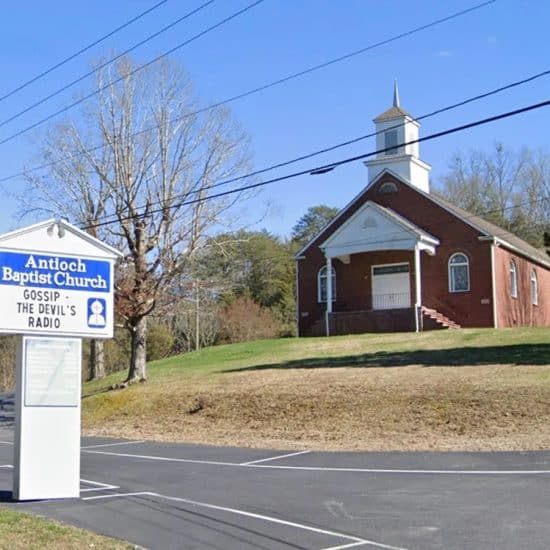By Vicki Brown, Word&Way Associate Editor
"If anyone had asked me 10 years ago what I would be doing, I would never have guessed I'd be doing this," Gerald Harvey of Sedalia declared.
 But Harvey sees his role as national commander of the American Ex-Prisoners of War Association as an extension of his missionary career — a way to minister to POWs as a former POW himself.
But Harvey sees his role as national commander of the American Ex-Prisoners of War Association as an extension of his missionary career — a way to minister to POWs as a former POW himself.
The association grew out of World War II, when wives and mothers of prisoners and soldiers missing in action in the Philippines and Japan decided to try to send letters and gifts to them. Some of those soldiers decided to begin meeting together for support after they returned home.
The ex-POW association is open to former imprisoned American soldiers, their wives and children and interned civilians from "any war, any place, at any time," Harvey said.
Former POWs reach out to one another for support. Members use the organization as a way to get information out to other ex-POWs about benefits available to them and as a means to work for additional government assistance. But attracting those eligible for membership sometimes is a daunting task. In fact, Harvey had not wanted to join at first.
"There are at least 10,000 who haven't been contacted," he explained. "Often they are very negative when they are first contacted. They don't want to have anything to do with it or with the government."
For some, even considering the possibility of joining such an organization dredges up painful, often horrific memories. "I was that way," he added. "You have to break down their resistance and be persistent. Most don't want to talk about it."
A radio operator and gunner on a B-17 bomber, Harvey was part of a squadron assigned to bomb an oil refinery in Gelsenkirchen, Germany, on Feb. 16, 1945. Flak from the explosions ripped through two of the plane's engines.
The crew decided to try to nurse the plane to England and tossed out everything they could to lighten the strain on the remaining engines. Too badly damaged, the plane crashed into the North Sea.
They managed to nab one life raft. Designed to hold about five individuals, the raft took on water as nine men climbed in. They survived 12 hours in freezing water up to their waists before making shore and being captured by Germans.
Although Harvey shares that part of the story — it's included in Jimmie Dean Coy's "Prisoners of Hope: A Gathering of Eagles, Book Three" — he rarely will talk about his prison camp experiences.
Although he had been approached by members of the Sedalia ex-POW chapter, he didn't want to get involved. "I didn't want anything to do with any military organization," he said.
Then he received a letter from a former crew member.
Association members from across the country gather each year for business and fellowship. A member himself, the crewman decided to try to entice the rest of the crew to join him.
Harvey did and was impressed. He joined the national organization and decided to try out a local meeting.
"They made me feel welcome — like a long-lost brother. There was no drinking or cursing, and they closed with prayer," he explained.
Members encouraged Harvey to take advantage of the organization's benefits, including spending time with a psychologist who encouraged him to write down his memories and to share them with his family at some point.
A William Jewell College graduate, Harvey earned master of divinity and master of theology degrees at Southern Baptist Theological Seminary and a doctor of ministry degree at Midwestern Baptist Theological Seminary.
"I had taken lots of counseling, so I understood why the psychologist said I should write the memories down. I didn't do that until I joined the ex-POW association. I didn't realize how much help is available," he said.
A few years later, he shared those memories with his five daughters.
A pastor of churches in Missouri and Kentucky, Harvey and his wife, Eunice, served 25 years with the Foreign (now International) Mission Board in Rhodesia (now Zimbabwe).
His involvement in the ex-POW association is ministry, he said. He serves as chaplain of the local chapter and state organization. "So I wear a cross," he said. "Whenever I go to chapter meetings around the country, the cross immediately opens doors.
"People will stop you and talk to you. They tell you their problems because they know you will not put them down," he explained.
As national commander, Harvey attends as many state annual meetings and individual chapter meetings as he can.
"I listen to problems and try to help," he said. "It's not that I'm all that smart, but I have heard the questions. Some don't go to church at all. There are some from every faith. But they don't hesitate to talk because they know you were a POW and you are a Christian. It's my ministry…an extension of what I've been doing all my life."
And his photography is part of that ministry. He took all the photos included in the ex-POW association's 2006 calendar.
Harvey had gotten hooked on photography while in high school and had sold some of his work. Early in his mission career, he sent a couple of snapshots he had taken across the country to the FMB. That led to photographic assignments in 107 countries with his work appearing in and on the covers of several publications, including the board's magazine, "The Commission."
While he is grateful for the opportunity to serve other former POWs at the national level, he remains concerned about individuals. He answers every letter and e-mail he receives and always responds to phone calls.
And he wants to let all ex-POWs know about the benefits to which they are entitled. "Tell them to contact me," he said.
Harvey can be reached at gereun@iland.net. (02-09-06)


